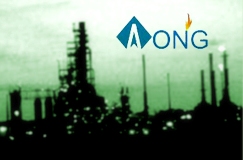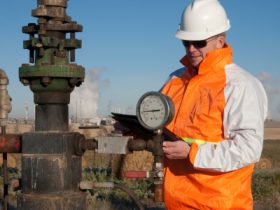– observe and check all the process parameters from the control room.
– walk in patrols around the process, watch the equipment, report any possible leak, unusual sound or vibration.
– write all the field readings such as pressure, temperature or levels and compare them with the values from the control room. and that happens by radio communication with the control room man to make the required adjustments to the valves, level and pressure transmitters.
– start and stop pumps, air compressors, heaters and any other equipment manually.
– collect samples from different lines and bring them to the laboratory.
– report any emergency case happens at the field and take the necessary actions after calling the control room about this accident.
How to become a successful operator?
many operators asked this questions, while many meetings and lectures discussed the answer of this question, here we have summarized the main knowledge any operator need to know, we put them here as advises :
Safety:
– from your first day in the oilfield, wear your personal protective equipment such as: full body coverall, safety shoes, helmet, goggles, air defenders and proper hand gloves, to protect yourself from accidents.
– take a site training on fire – fighting system in the process you work in, understand the fire – fighting pumps operation, have a look at the hydrants in your process, and memorize them all.
– make sure that all the fire – fighting tanks are 100% full, and that there are portable fire extinguishers in every critical area, check the hoses and make sure that they exist in every required area.
Process:
– study and understand the process, and write down the following:
– the inlets and outlets of each vessel or tank, the diameter and of each line.
– the level, pressure and temperature transmitters, or local gauges.
– the specification of each equipment: power – RPM – capacity ..etc.
– design temperature and pressure , capacity and every necessary detail about each vessel.
– the PSVs in this vessel, and the setpoint of each one.
Control Systems and Electricity:
– study the PI&Ds of your process, and understand each control loop and interlock that exist in your process. read more about Digital Oilfields.
– you can make use of the charts supported by your PC by making charts between different variables in your process, this will help you better understand the relationship between these variables and their effect on the process, hence; the relationship between the equipment.
– study and understand all the power circuits and loops in your process.
Miscellaneous:
– write in your notebook any useful information.
– make a scheduled run-up and shut down table, for example: replace Pump – A with Pump – B in the second week of the month.
– watch the oil level of your pumps, compressors and each equipment in the process.
– make a “Shut-Down Plan” by appointing the rule of each one in your personnel, this will help each one to understand his work while emergency “such as emergence shut-down or fire”.
– in your space time, real books and researches about your process, and the equipment used in it, that will make you gain a lot of useful information, and make your practical knowledge coupled with huge theoretical one.
– Write down all the operation problems happened in your process, and how to solve them, and make sure to read this from time to time.


make use of these useful instructions and add some if you have.
R/sir
With my experience a best and successful operator need to learn about sample checking like titration and analysis etc.and the sample checking alot of benifit for operator and compancompany.this skill will help you a good production. And no error in production.
Thank you.